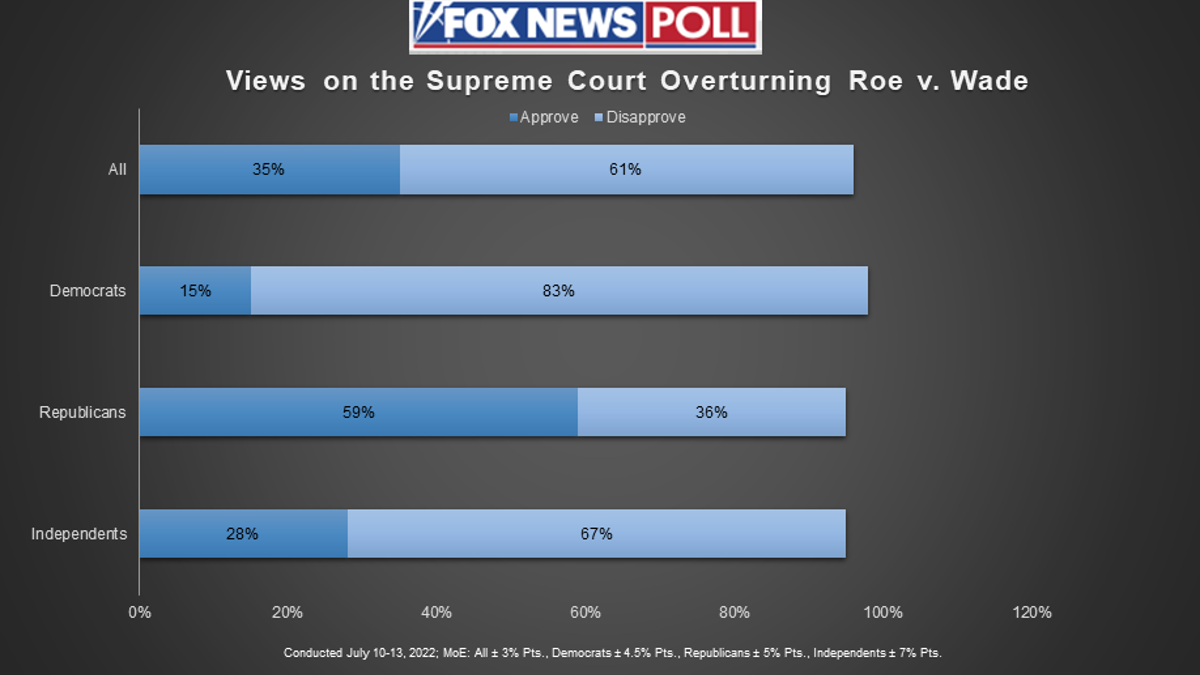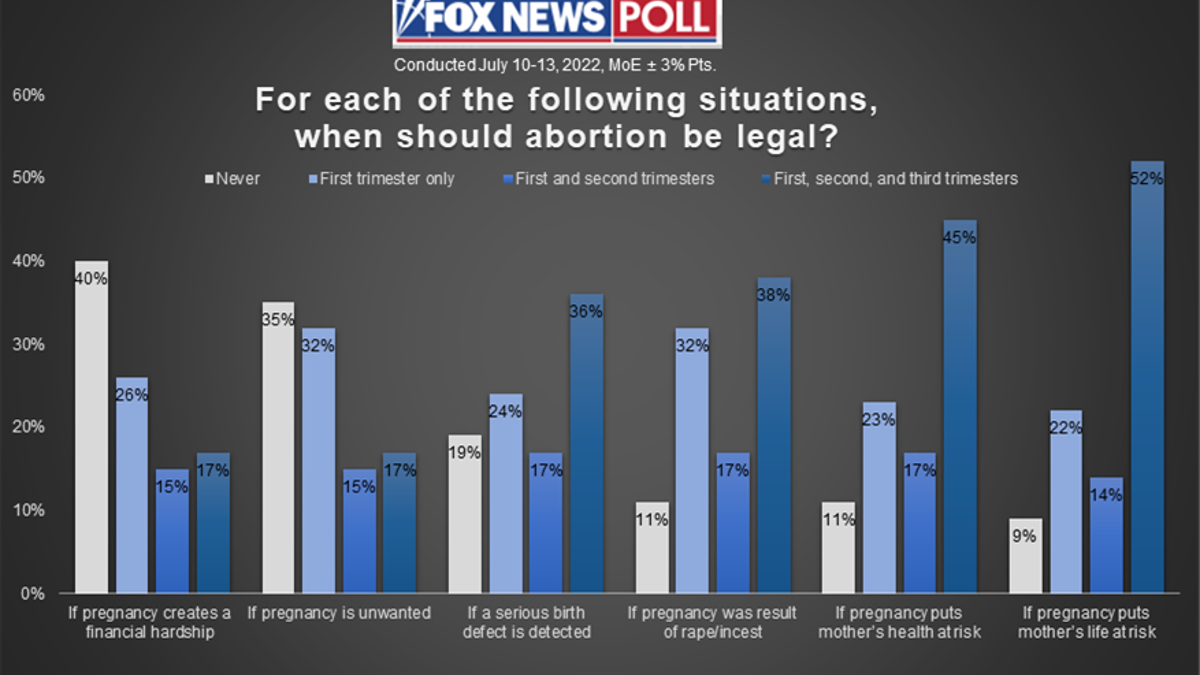Fox News Flash top headlines for July 15
Fox News Flash top headlines are here. Check out what's clicking on Foxnews.com.
Almost a month after the U.S. Supreme Court overturned Roe v. Wade, a new Fox News survey finds a majority disagrees with the ruling. At the same time, overall views on the legality of abortion vary by situation and trimester.
The national poll of registered voters, released Sunday and conducted after President Biden signed an executive order protecting access to reproductive health care services, finds 61% against the demise of Roe. That includes majorities of Democrats (83%) and independents (67%). Just 36% of Republicans oppose overturning the case.
Overall, 35% of voters support the reversal of Roe.

A 52% majority favors abortion being legal either all (31%) or most of the time (21%), while 46% think it should be illegal either all (8%) or most of the time (except in certain circumstances) (38%). That is relatively unchanged since June (before the ruling).
REP. MAXINE WATERS: AMERICANS WILL ‘DEFY’ SUPREME COURT FOLLOWING ABORTION RULING
However, views on abortion fluctuate when looking at support by trimester and situation.
Majorities of voters think abortion should be legal in the second and third trimesters if the mother’s life (66%) or health (62%) is at risk, in cases of rape/incest (55%), or if a serious birth defect is detected (53%). Voters are much less comfortable with permitting abortion in the later stages of pregnancy when the reason is financial or the pregnancy is unwanted (32% each).

When it comes to allowing abortion, bipartisan support is strongest in two instances:
- In the case of an unwanted pregnancy, at least half of Democrats (50%), Republicans (84%), and independents (64%) say it should either never be legal or only permitted in the first trimester.
- If the mother’s life is at risk, at least half support abortion up to the second or third trimesters (Democrats 81%, GOP 52%, independents 64%).
"Americans’ attitudes on abortion are more subtle and contextually dependent than one might think," says Republican pollster Daron Shaw, who conducts the Fox News survey along with Democrat Chris Anderson. "There are hard-core people on both sides, but they are clearly a minority overall."
Still, while abortion is one of the "it" topics these days, voters aren’t nearly as concerned about it as other top issues. Seventy percent are extremely or very concerned about abortion policy. That’s lower than worry about inflation (93%), higher crime rates (85%), the future of democracy (83%), and gun laws (78%). Another 7 in 10 voters are concerned over Russia’s invasion of Ukraine (69%) while there is less concern about illegal immigration (62%) and coronavirus (53%).
On June 30, Biden said he would support altering the Senate filibuster in order to codify abortion rights and privacy protections. While the fate of this Senate practice is all the talk in Washington, Americans are ambivalent. Almost half of voters don’t have an opinion on eliminating the filibuster (47%) while the other half splits: 26% in favor vs. 26% oppose.
And when it comes to reforming other political institutions, the poll finds majorities are open to change, except when it comes to packing the Supreme Court.
Just under half, 46%, favor increasing the number of justices sitting on the high court. Out of the five measures tested, it is the only one under 50% support.
CLICK HERE TO GET THE FOX NEWS APP
Establishing term limits for members of Congress is the most popular, with 81% support, followed by a mandatory retirement age for Supreme Court justices (71%), 18-year term limits for SCOTUS (66%), and replacing the Electoral College with the national popular vote (55%).

Eight in 10 Democrats (82%) and Republicans (80%) agree that Congress should be term-limited, but that’s where bipartisanship ends.
By wide-margins, Democrats are more likely to support mandatory retirement ages for justices, 18-year term limits, packing the court, and getting rid of the electoral college.
CLICK HERE FOR TOPLINE AND CROSSTABS
Conducted July 10-13, 2022 under the joint direction of Beacon Research (D) and Shaw & Company Research (R), this Fox News Poll includes interviews with 1,001 registered voters nationwide who were randomly selected from a national voter file and spoke with live interviewers on both landlines and cellphones. The total sample has a margin of sampling error of plus or minus three percentage points.

